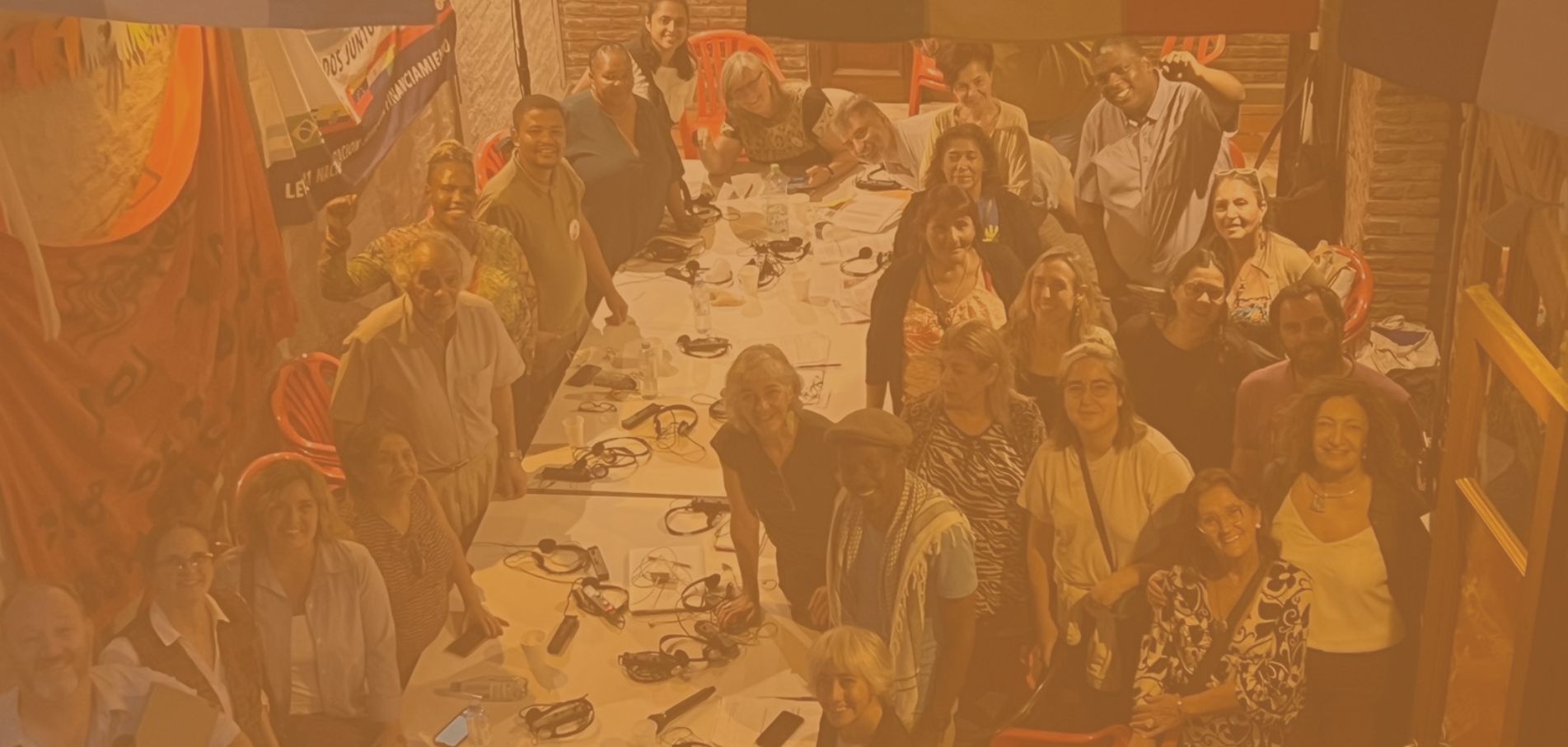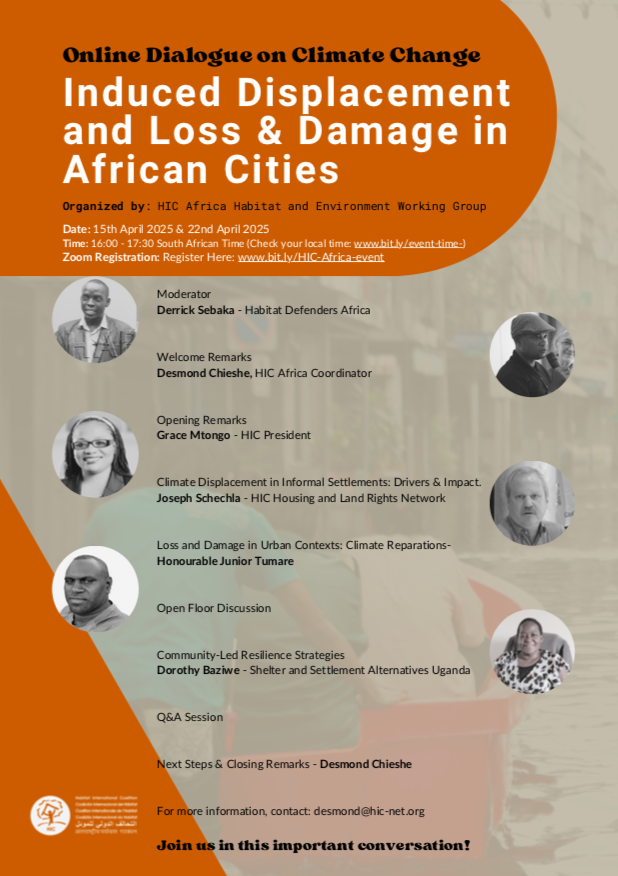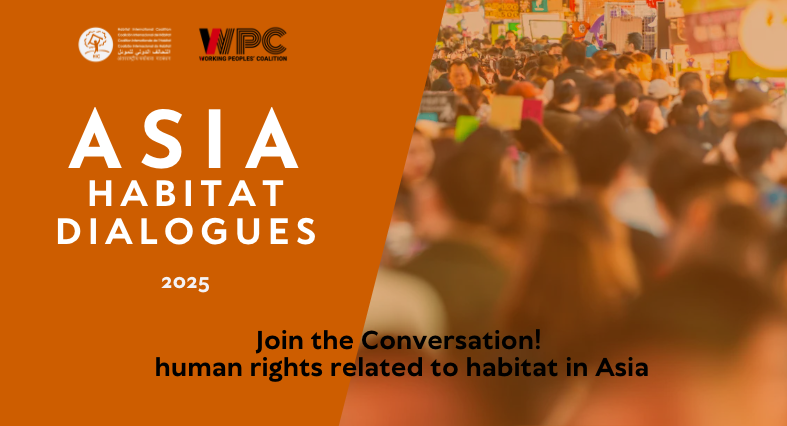This International Day of Rural women, Habitat International Coalition, led by its cross-regional working group on Feminist Approaches, is calling to raise the voices of rural women and building alliances to recognize, protect and realize their human right to land!
Click here to see the campaign
As it is widely documented and denounced by feminists around the world, disparities and direct and indirect discrimination pose a concrete barrier for the enjoyment of rights of women:
- For every dollar men earn, women earn 77 cents (UN, 2022);
- Women carry out at least 2.5 times more unpaid work than men (UN, 2022);
- Women are targeted victims of violence at home and in contexts of conflict;
- Environmental disasters, climate change and conflict disproportionately affect women;
- Around 80% of people displaced by climate change are women, (UN Environment, 2022)
Such a reality varies greatly according to regions, race, income and between rural and urban areas, amongst others.
When looking at women’s enjoyment of habitat related human rights, one aspect that is of central importance is their access, management and control over land. Globally, less than 15% of the world’s landholders are women (FAO, 2018). This varies widely regionally: 5 percent in Middle East and North Africa to 18 percent in Latin America and the Caribbean (FAO, 2018). Over large portions of the world women are systematically denied access and rights to land through economic, legislative, social and cultural barriers. This disparity directly affects women’s income security, decision-making power and autonomy.
This scenario is particularly worry-some for women living in rural areas, in which land represents not only a place to live, but also an important source of subsistence. Fewer than 15 percent of agricultural landholders around the world are women and 85 percent are men (FAO, 2018), with rural women facing significant barriers in accessing land and the incentives necessary to develop agricultural activity. Moreover, it is vital to recognize how women also play a key role in community organizing and care. When women are disposed and discriminated against in their enjoyment of the human right to land, the whole community is affected. These issues are heightened by the large gender gap that remains in women’s access to decision-making and leadership.
As evidenced by HIC’s ongoing campaign for Urban October, the recognition, protection and fulfillment of the Human Right to land is central for the enjoyment of a diverse set of basic rights and for reducing inequalities around the world. It is projected that giving women the same opportunities as men could rise agricultural production by 2.5 to 4 per cent in the poorest regions and the number of malnourished people could be reduced by 12 to 17 percent. (FAO, 2011).
In this regard, and particularly where women are concerned, recognizing land as a human right is not just about securing property rights, but protecting tenure security and democratic management and control over land, through diverse tenure systems that go beyond individual private property. As highlighted in the campaign, communities around the world are already organized in diverse manners to protect and fulfill their right to land. Following this lead, this International Rural Women Day HIC wants to shed light and share stories of rural women across the world acting to protect their human right to land.
In Argentina, the Third Malón de la Paz, made up of more than 400 indigenous communities, left from La Quiaca (Jujuy) on July 25 and passed through different provinces until reaching the city of Buenos Aires to demand the nullity of the constitutional reform of the governor of the province of Jujuy and to defend the communal ownership of their lands. The protest is led mainly by women of native peoples and peasant women who seek to defend the lands and natural resources not only of their communities, but also of those that belong to all of us and which are threatened by the advance of extractivism proposed by the new constitution.
In Yemen, because of the war, violent crimes against women have increased dramatically and dangerously. Focusing on, highlighting, raising awareness and advocating for it is very important to activate laws to protect women and preserve their lives, as well as to prevent these crimes and violence against them. Incorporating Resolution 1325 into the country’s constitution will contribute to protecting women, their access to decision-making, and their right to decide what is best for them.
In Mexico, in the Community of San Salvador Atenco, women and men organized themselves into the People’s Front in Defense of the Land (FPDT) to defend the land, water, their means of subsistence and their ways of life against the project of international airport in Mexico City that in 2001 threatened to expropriate their lands, put their lives at risk and destroy the environment. Their struggle still endures to this day. In the history of this struggle, the community realized that the involvement of women was fundamental to its victory. Likewise, the participation of women in this land defense movement contributed to transforming their social, family and reproductive roles in the community. The women of Atenco have made it clear that the fight for the Earth is a fight for life, not only for the communities affected by expropriation and privatization, but for the life of humanity and the planet . Doña Trini , one of the protagonists of this movement, reminds us that “the fight for the land is a fight for existence”, if the earth is destroyed, privatized, contaminated, human beings are condemned to die; as well as all the other species that are part of this “body-territory”, of this planet that is made up of various elements, such as rivers, forests, seas . That is why for Doña Trini “we are all obliged to defend life”, because if we fight together, we will always find a way, an alternative to exist. This is why the protection of land rights is fundamental.
In Zimbabwe, there are progressive but not consolidated efforts post land reform- The land reform program which began in 2000, transferred 70% of the country’s most fertile land from 4500 white commercial farmers who had been holding the land for the past 100 years to over a million small, medium and large scale farmer households. The greatest challenge now is the policy vacuum which has left the beneficiaries, particularly women without tenure security and unbankable tenure security. This has resulted in low investment in the land and continued displacements and forced evictions. Production on the farms is being negatively affected due to lack of a land policy which ensures bankable tenure documents and financial support for beneficiaries of the land reform program.
Following the lead of these experiences, we call for concrete action to recognize, protect and fulfill rural women’s human right to land. We also build upon international recognition on this ground, including:
- General Comment 26 on the right to land, Committee on Economic, Social and Cultural Rights
- General Recommendation No. 34 on the rights of rural women, UN. Committee on the Elimination of Discrimination against Women (CEDAW)
- General recommendation No.37, gender-related dimensions of disaster risk reduction in a changing climate, CEDAW
Building from that, we highlight four main points to advance on guaranteeing rural women’s access, management and democratic control over land:
- Ensuring mechanisms to protect women’s tenure security, particularly in contents of violence and conflict;
- Legal recognition and promotion of diverse tenure arrangements, particular collective ownership, support community alliances and organization led by women;
- Gender sensitive land policy and legislation, including also initiatives of awareness-raising and capacity-building;
- Democratization of representation and decision-making
Join us in raising our voices around the recognition, protection and fulfillment of rural women’s right to land! We are looking forward to hearing from you on others inspiring stories of rural women around the world. You can share them with us here and we will visibilize them and disseminate them through our network!


